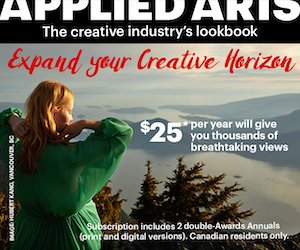Guidance
Frequently Asked Questions For Students
Frequently Asked Questions
My parents don't think I'll make enough money in the arts. Can it really be done?
YES! There are countless jobs in the creative industry where you can provide a service to businesses willing to pay for quality craft.
What are my financial aid options?
Between scholarships, bursaries, government student assistance and other awards, you have many ways to help pay for your creative arts education. On ScholarshipsCanada.com, create a profile and apply to a wide range of general and arts-specific awards, study application tips, and read advice on alternate aid options.
Are there employee benefits in the creative industry?
YES! If you are employed by a creative studio or agency, most have work-life perks like group benefits plans, RRSP/pension contributions, etc. If you work freelance, you can take advantage of benefit plans through certain organizations—for instance, if you’re an Applied Arts subscriber, visit appliedartsmag.com/benefits to join our Group Benefits Plan.
What should I keep in mind when I prepare my portfolio for university/college admissions?
Eligible applicants are selected on the basis of academic achievement, including required courses, and the results of their portfolio assessment (if the program you are entering requires one). Carefully check each program’s academic and portfolio requirements. Some schools, including Sheridan College, offer opportunities to further develop your portfolio for admission.—Shellie Zhang, communications coordinator, Faculty of Animation, Arts and Design, Sheridan College
Do people who don’t have a background in art get hired in the creative industry?
Traditional post-secondary school has become more and more outdated. Hiring managers are looking less at bachelor degrees and more on strong demonstrated experience in the field. As a creative, this opens a lot more doors.
What you definitely need is an extensive portfolio. Employers want to see your work. Whether it’s in graphic design, mobile app development, videography or writing, it’s never too early to start creating your personal brand. This will be your passport into the next phase of your career, so ensure it’s polished and professional.—Mandy Gilbert, founder & CEO, Creative Niche
Is it better to perfect one skill (i.e. illustration) or have a basic understanding of a variety of skills?
Given the ever-evolving tech world, the skills you learned last year could be completely outdated this year. You constantly have to keep on top of your craft, whatever that may be. Companies are constantly looking for “unicorns”—people who have multiple skill sets are highly desirable.
However, it’s only an asset if you’re really good at what you’re doing. Hiring managers are more interested in someone who does something really well than someone who has basic knowledge of a lot of things. Find what you’re passionate about, and you’ll naturally be good at it. It will be your best asset. —Mandy Gilbert, founder & CEO, Creative Niche
When I graduate, should I start freelancing right away or work for a company?
Freelancers are typically experienced in their field. So if you’re straight out of university, it’s likely that you may not have the same level of knowledge you’ll need to succeed as a freelancer. Being surrounded by those who have years in the industry will help you grow and develop. Plus, working for a company will open doors that you may not have access to as a solopreneur. For example, campaigns for international brands, or mentorship opportunities where you can learn from the industry's best.—Mandy Gilbert, founder & CEO, Creative Niche
Do I need an internship to get a job?
While it’s not always necessary, it definitely helps. Hiring managers want to see that even though you’re just starting out, you’ve taken the steps necessary to build your knowledge and portfolio.
I would encourage you to only take internships with companies that will provide meaningful experiences. Yes, you may be doing some of the grunt work, but you shouldn't be spending your days picking up dry cleaning (although the occasional coffee run you can let slide).—Mandy Gilbert, founder & CEO, Creative Niche
Image: picjumbo.com_HNCK4005



